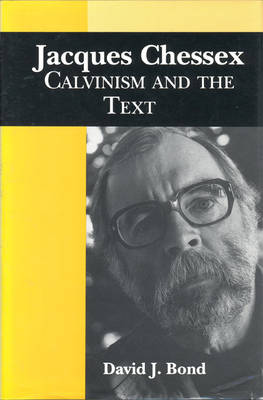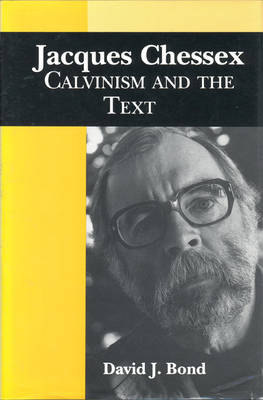
- Retrait gratuit dans votre magasin Club
- 7.000.000 titres dans notre catalogue
- Payer en toute sécurité
- Toujours un magasin près de chez vous
- Retrait gratuit dans votre magasin Club
- 7.000.000 titres dans notre catalogue
- Payer en toute sécurité
- Toujours un magasin près de chez vous
Description
Despite an impressive body of poems, novels, short stories, and literary criticism; high praise for his writing by French and Swiss critics; and a collection of honours that includes the prestigious Prix Goncourt, awarded for his novel L'Ogre in 1973, Jacques Chessex is relatively unknown outside France and Switzerland. With this book, David J. Bond provides the first comprehensive study of his work in any language - a study that reveals Chessex's deep ambivalence towards his Calvinist heritage and his efforts to resolve this dilemma through his texts.
Born in 1934 in Payerne, in the region of French-speaking Switzerland known as the Vaud, Chessex grew up amid the pervasive influence of the Calvinist church. His writing, which tells of Vaud society and the hypocrisy of many of its leading members, reveals his preoccupation with a rigid morality, sin, remorse, and death. Bond shows that while Chessex uses his texts to escape this heritage and affirm alternate values, particularly sexual pleasure and enjoyment of life, his writing reveals a deep nostalgia for the stability and security of a strict religious system in a world that he finds unstable and even absurd without it. Chessex looks to the text as a univocal organizing principle that might impose order and sense. Bond sees in Chessex's writing an attempt to find unity in opposing values, to establish contact with others, and to overcome an obsession with death and the passing of time.
Spécifications
Parties prenantes
- Auteur(s) :
- Editeur:
Contenu
- Nombre de pages :
- 212
- Langue:
- Anglais
- Collection :
Caractéristiques
- EAN:
- 9780802005557
- Date de parution :
- 23-06-94
- Format:
- Livre relié
- Format numérique:
- Genaaid
- Dimensions :
- 157 mm x 235 mm
- Poids :
- 458 g







